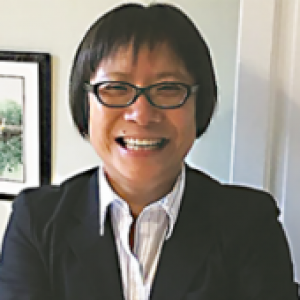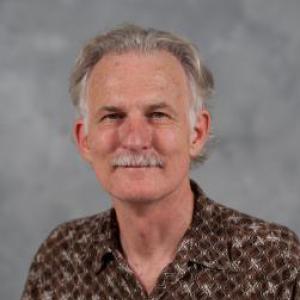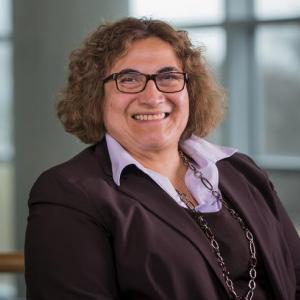Dong Qin

Dong Qin
Professor, School of Materials Science and Engineering and School of Chemistry and Biochemistry
Dong Qin is Professor in the School of Materials Science and Engineering, with an adjunct appointment in the School of Chemistry and Biochemistry, at the Georgia Institute of Technology (GT). Her academic records include a B.S. in Chemistry from Fudan University, a Ph.D. in Physical Chemistry with Professor Hai-Lung Dai from University of Pennsylvania, a postdoctoral stint with Professor George M. Whitesides at Harvard University, and an MBA from the University of Washington. Qin is a recipient of the GT-Class of 1940 W. Roane Beard Outstanding Teacher Award (2020), GT-Provost Teaching and Learning Fellow Award (2018), GT-Geoffrey G. Eichholz Faculty Teaching Award (2018), 3M Non-Tenured Faculty Award (2015), and GT-CETL/BP Junior Faculty Teaching Excellence Award (2015).
Qin has pioneered a set of in situ techniques for the characterization of atomic/molecular events on the surface of noble-metal nanocrystals in a liquid phase and under operando conditions. In one example, she established the use of surface-enhanced Raman spectroscopy (SERS) in probing the heterogeneous nucleation and growth of colloidal nanocrystals, as well as catalytic reactions on the surface of designer nanocrystals. Qin is also widely recognized for her many original contributions to the rational synthesis of metal nanocrystals with novel properties. Qin has co-authored 80 scientific papers in peer-reviewed journals, with an h-index of 39. Among them, she is the corresponding author of 33 papers since she started at GT in 2012. Qin is an Associate Editor of Nanoscale (with an impact factor of 7.79), Royal Society of Chemistry (RSC), and also serves on the advisory boards of Journal of Materials Chemistry C and Nanoscale Horizon, RSC. In 2021, Qin was elected a Fellow of Royal Society of Chemistry (FRSC). Founded in 1841, RSC is the largest organization in Europe for advancing the chemical sciences.
404.385.2182
Office Location:
MoSE 3100N
Plasmonics; shape-controlled nanocrystals; Catalysis; in situ characterization; Advanced Characterization; Soft lithography
IRI Connections:









